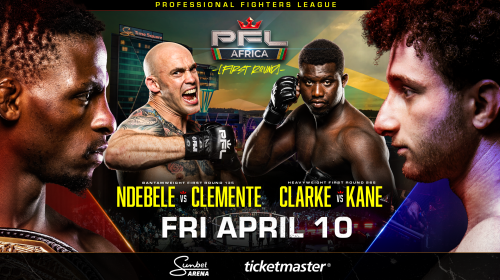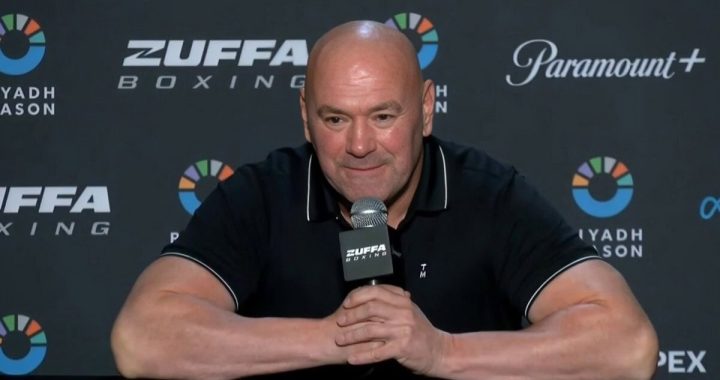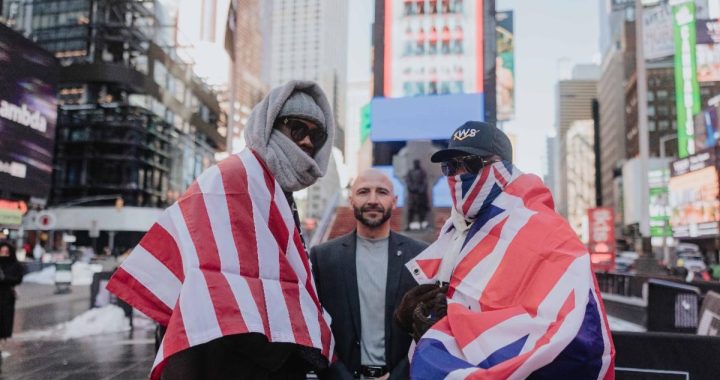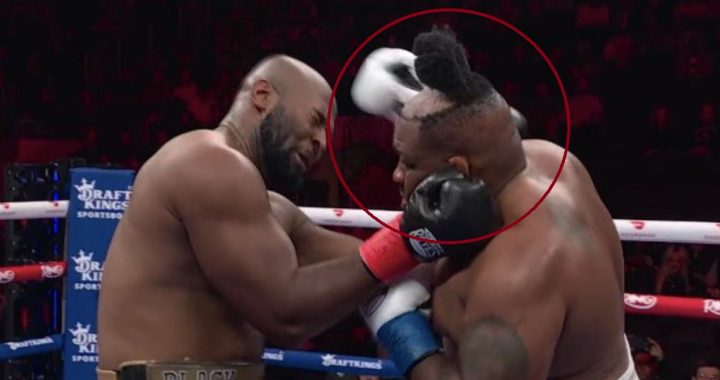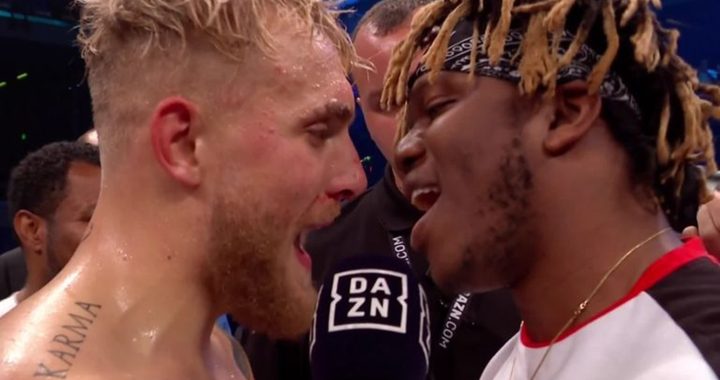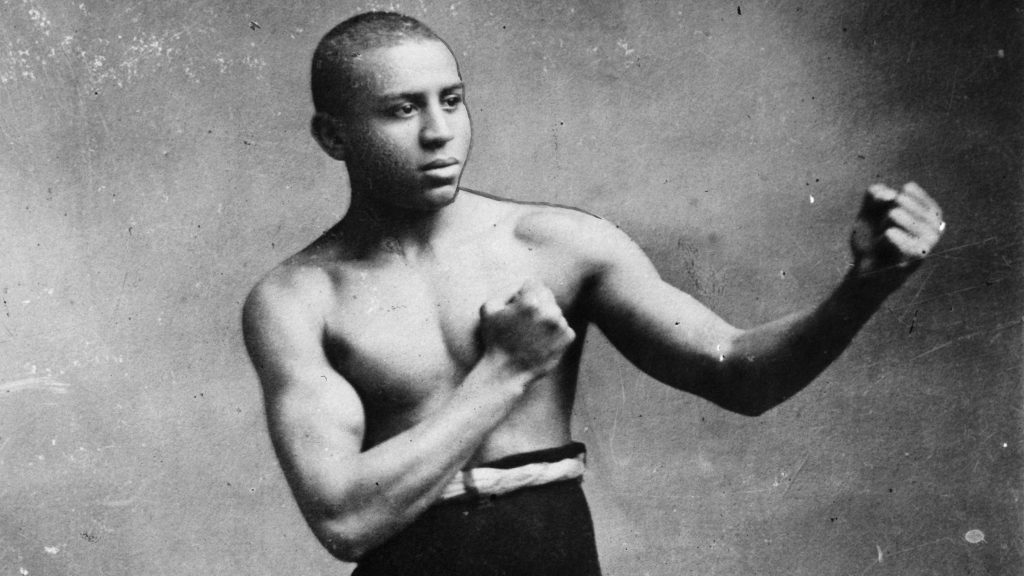
CIRCA 1900: Portrait of Joe Gans of Baltimore, nicknamed the " Old Master" and the World Lightweight Champion from 1902-1908.(Photo by: The Ring Magazine/Getty Images)
Boxing Across The Nation: Maryland – Joe Gans: First 20th Century African-American Champion
Boxing has been a part of the American sports scene since the 1700s by way of England. It started by infiltrating the larger port towns before eventually working its way into the lexicon of America. Now it showcases some of the most talented combat sports athletes in the world. We will embark on a 50-part saga exploring the best boxers representing the United States. Some states will have more athletes to choose from than others, but the journey will be quite the ride. Let’s embark on the journey looking at an interesting fighter or bout from each state. Next, we look at our 20th entry, the state of Maryland.
Check out the 19 states we have covered by clicking below:
Alaska-Hector Camacho vs John Montes Card
Arizona-Hall of Famer Michael Carbajal
Arkansas-The Tragic Story of Sonny Liston
California-The Underappreciated Career of Andre Ward
Colorado-Boxing’s First Mega Star Jack Dempsey
Connecticut-Boxing’s Wins Leader Willie Pep
Delaware-The Night Dave Tiberi Almost Shocked the World
Florida-Pryor vs Arguello Showered In Controversy
Georgia-The Tragic Story of Cleveland “Big Cat” Williams
Hawaii-“The Hawaiian Punch” Brian Viloria
Idaho-The Sad Tale of Ed Sanders
Illinois-“The Drunken Master” Emanuel Augustus
Indiana-The Life and Antics of Kid McCoy
Iowa-Michael Nunn: In the Ring and in the Prison
Kansas-Jess Willard: “Pottawatomie Giant” Lives in Boxing History
Kentucky-Davey Moore: Losing It All In The Ring
Louisiana-Harry Wills: Boxing’s Greatest Injustice
Maine-Liston/Ali II: Putting A State On The Map
Maryland
Maryland, the seventh state to join the Union, is 19th out of 50 states as far as population. With two large metropolitan areas located within the state, Maryland hosts many professional sports teams. Though the state’s official sport is jousting, the area has a rich history in boxing with several of the early 1900’s best boxers coming from this area. Greats such as George Chaney began to solidify Maryland’s place on the boxing map. There is one other name that really paved the way for future smaller weight class fighters in general as well as future Baltimore fighters like current lightweight and super-lightweight champion Gervonta Davis and that man is “Old Master” Joe Gans.
Early Life
On Wednesday November 25, 1874, Joe Gans was born in Baltimore. Gans was born during the Reconstruction Era, a period of time after America’s Civil War in which the nation was trying to rebuild the North and the South into one union. So racism and racial segregation are still a huge part of American society. To help his extremely poor family earn some money, Gans would go down to the wharves and collect oysters. Self-taught in the beginning, Gans was eager to earn money by boxing for his family.
His first taste in action came in what were called “Battle Royals” where several boxers were placed in a ring. The last man standing typically won the prize money. Through these “events,” Gans was discovered by Al Herford, his future manager and manager of the Eureka Athletic Club in Baltimore. In 1893, at the age of 19, Gans would reach his first goal of becoming a professional boxer.
Fighting In The Ring And Fighting Society
Not only did Gans have to compete against fighters in the ring, but often faced societal issues of being a free black man in the Jim Crow Era. A victim of the times, Gans was often forced by promoters to allow white opponents to go the full distance in matchups to prevent a knockout. While coming up through the ranks, Gans’ style began to form his own style, displaying technique over brawling. Many will say Gans modeled his style after the first ever black world champion of any sport, George Dixon. The importance of the jab and counter-punching were skills Gans built from seeing Dixon.
Several newspapers of the times praised the skills of Gans. The September 04, 1906, edition of The San Francisco Chronicle stated, “A marvel of speed and science.” Pound-for-pound legend Sam Langford said of Gans, “Joe Gans was the greatest fighter of all time.” A 1906 edition of the Boston Globe called Gans, “one of the most wonderful fighters from a scientific view that the world has ever known. There is not a trick or point that he does not know.” Another edition of The San Francisco Chronicle said of Gans’ style, “there never was a fighter who could block with such skill and precision as Gans.” Even three-time world heavyweight champion Bob Fitzsimmons said of Gans, “the cleverest fighter, big or little, that ever put on the gloves.”
First Long-Awaited Title Shot And Hall Of Fame Career
Though Gans is looked at now as one of the greatest lightweights in boxing history, it took until 1900 for him to finally get a world title opportunity. The Ring Magazine actually listed Gans as the third-greatest lightweight in history. The opportunity finally came against Frank Erne after compiling a record of 81-5-13 in his seven year career to this point. In the 12th round of a potential 25 rounds Gans had the bout stopped due to a cut on his eye from a headbutt. 26 months later (and 34 bouts later) Gans would get his shot at redemption and scored big. In their first round of action, Gans scored the first-round knockout to become the first African American world champion of the 20th century. His hall of fame resume would only build from this point.
The site of a monument and one of the first recorded significant championship bouts on film, Gans would battle Battling Nelson on September 03, 1906, to a victory in the 42nd round. The tandem would duel two more times with Nelson winning both by KO (17th and 21st rounds respectively.) These would be Gans’ last two bouts for a title heading into his very last bout.
Less than four years later in August 1910, Joe Gans would pass away at the age of 35 to tuberculosis. Buried in Baltimore, his monument is maintained by the International Boxing Commission. In 1990, 80 years after his passing, Gans was inducted into the International Boxing Hall of Fame. His career ended with 145 victories and 100 knockouts. Gans was a leader in the 20th century for African American boxers, leading the charge for all to follow.














